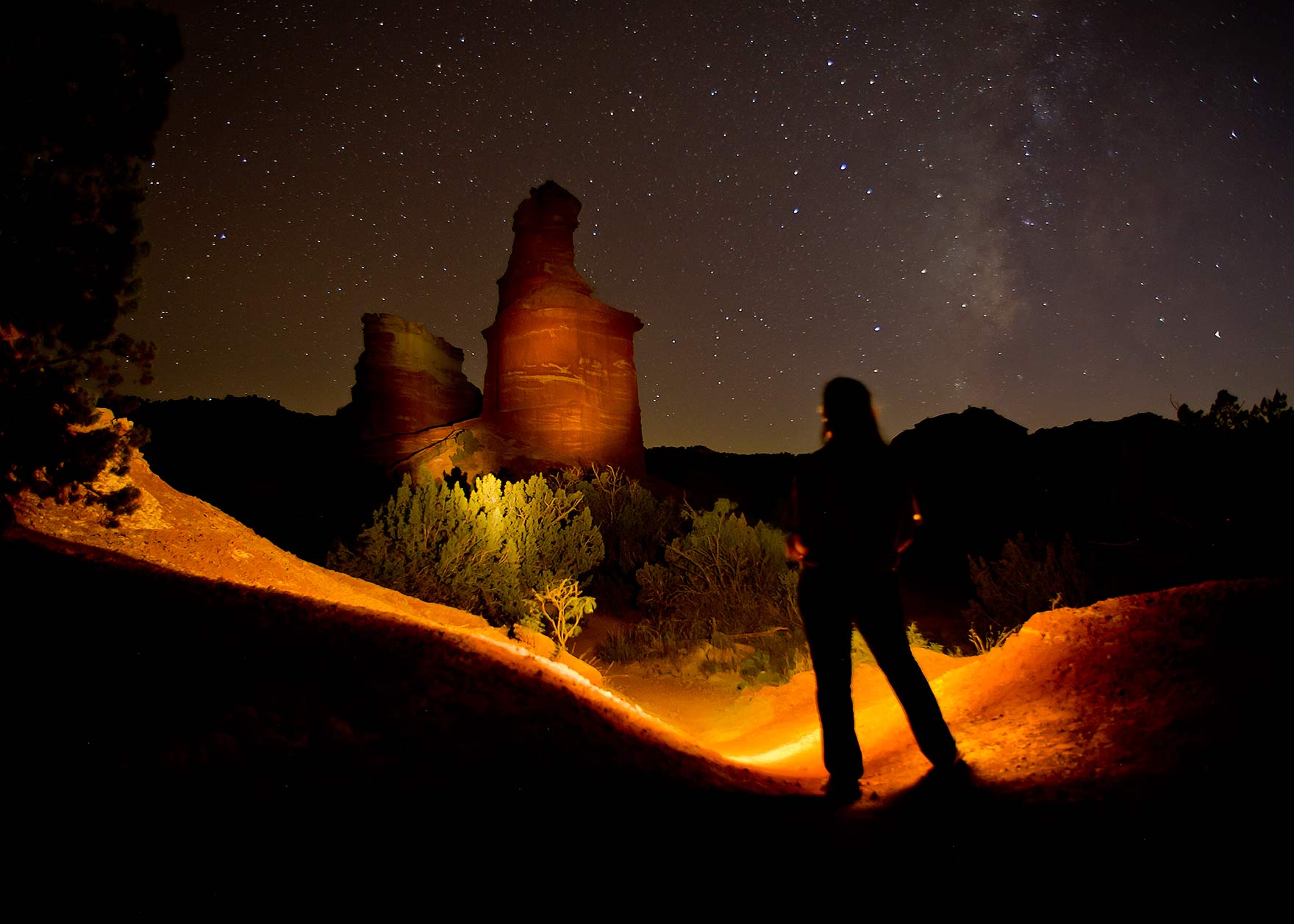Hikes After Dark
This is Passport to Texas
Don’t let the dark keep you indoors. With a flashlight, a friend, and a little daring, a night hike in a state park can be exhilarating.
One thing that’s really kind of fun, too, is to not use your flashlight.
When we spoke, Kelley Lauderdale was an interpretive specialist at Ray Roberts Lake State Park north of Denton.
If you let your eyes adjust to the dark and the moonlight, you’d be surprised at how well you can actually see. And sometimes when you do it that way, it really reveals a whole new wilderness. You see a lot more than when you get this tunnel vision with the flashlight and only see what’s illuminated.
Kelly recommended hiking with others on familiar trails, and to be prepared to experience wildlife by ear.
There are lots of amphibians that are active at night. And that’s one of the really fun things to listen for, because they’re pretty easy to hear. And oftentimes, once you learn to identify the sound of an amphibian, you’ll say: “Hey! That’s what I’ve been hearing all this time? I know that!”
Frogs and toads aren’t the only animals active at night.
There are owls that are active. Eastern screech owls are very nocturnal. Another bird that a lot of people hear at night is the Chuck Wills Widow; and they’ll sing and call all night long. Sometimes campers get a little bit tired of it if it’s really close to their campsite.
So step outside when the sun sets and get an earful of wildlife.
For Texas Parks and Wildlife, I’m Cecilia Nasti.



 Passport to Texas is a
Passport to Texas is a  Passport to Texas is made available by:
Passport to Texas is made available by: